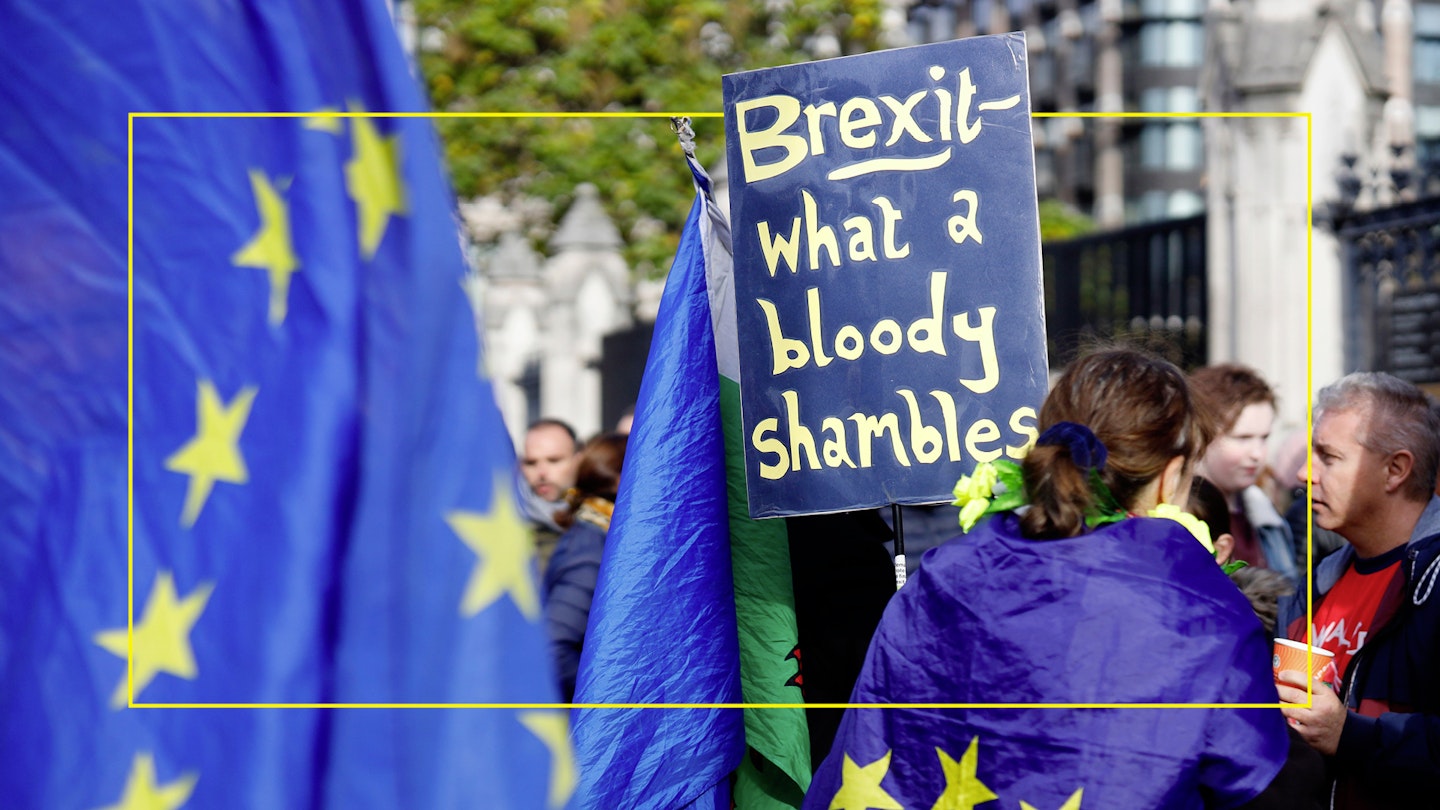The Christmas present that no one wanted has arrived: a general election on 12 December. So, just as our diary fills with parties, we’ll be unable to avoid the other kind of parties: politicians vying for our vote.
The backdrop to this is that, after three attempts and three missed deadlines, the UK has still not left the European Union. However you voted in the 2016 referendum, you may share a sinking feeling that comes with the postponement of the (almost) inevitable. We are standing at the door, but we don’t seem to be able to step outside. Instead, we’re having the same arguments on repeat about whether we really do want to get out, and how exactly we do it.
In the film Groundhog Day, Bill Murray’s jaded TV weatherman finds himself living the same day over and over (and over) again. This is where we are politically as a country now: trapped in Brexhog Day, a stretched-out crisis where no solutions seem to be found. It is not a happy place.
But will a general election help us escape this? Not necessarily – 12 December could deliver another hung parliament, in which no party holds a majority of seats. That would mean further gridlock and the renewed possibility of a no-deal Brexit. Boris Johnson, with a significant lead in the polls over the Labour Party, has made a similar calculation to that made in 2017 by Theresa May: that enough people are afraid of a Jeremy Corbyn-led government to give the Tories a majority. That belief back red spectacularly last time.
Yet the mood in the country is different now. Two years ago, the nation’s reaction to a general election was best summed up by the immortal words of Brenda from Bristol: ‘Not another one!’ Voters understandably don’t like to feel that they’ve been manipulated, and people saw 2017 as an unnecessary imposition.
People may resent the timing of the 2019 general election, but many accept that we’re in a political stalemate and need a path out of it. There was not enough support in Parliament for any type of EU exit plan. Although Johnson had managed to get his Brexit bill through a second reading in the House of Commons – the first time lawmakers had agreed a way forward – it was at risk of being heavily tweaked by MPs, and losing backing along the way.
For all those already suffering from political overload, you’re now facing another five weeks of it. So, here’s my advice to manage it: pick a news source or two that you trust, and get your information from there. Avoid arguing on social media, especially with people you’ve never agreed with, or never met. Deploy stress-relieving measures, whether it’s boxing or chocolate. And vote, obviously: this is the way we get to shape the country. In North East Fife last time, a candidate won by two votes.
Now, here’s the bad news (sorry!): even if the UK does leave the EU before or on 31 January, that is only the beginning. Johnson has negotiated a withdrawal agreement with the EU, not what the future relationship between the UK and the bloc looks like. There will be years of this debate still to come. And cynically, there are Brexit supporters who want to make us feel that we just want it over with, when in reality, agreeing that we are definitely going is only the first leg of a political marathon.
When I say I write about Brexit, people often make the same joke: what horrors did I commit in a past life to deserve this awful fate? But the reality is that all of us are stuck in this same news cycle, asking the same pained question: when will it end?
Rosamund Urwin is the Brexit correspondent for The Sunday Times
READ MORE:
